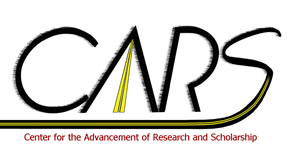Event Title
Cultural Identity as Resistance, Cultural Identity as Oppression: the Case of Homosexuality in Malawi
Location
Hart 117
Start Time
11-5-2017 10:10 AM
End Time
11-5-2017 10:25 AM
Description
Cultural identity can be used as resistance to unwelcome foreign interventions as well as an expression of power that disregards the rights of domestic minorities. In 2009, the Malawi government imprisoned two homosexual men planning to marry. International pressure pushed the government to release the men and to change draconian laws about homosexuality: some donors pulled funds from the country in protest. The government released the men but did not alter laws and the issue has come up repeatedly since. Focusing interviews with NGO staff in Malawi, I examine respondents’ reactions to homosexuality as well as perceived donor pressure to change Malawian laws. The majority of my respondents believe homosexuality is a “western thing,” in opposition to Malawian morality, and that donor focus on homosexuality shows donors care less about poor Malawians than their own agendas. Malawians’ responses to homosexuality are indicative of the schisms that can exist between western and African ideals, demonstrate Malawians’ flexible cultural identifications, and provide a lens with which to view competing inequalities, conceptions of human rights, and expressions of power.
Cultural Identity as Resistance, Cultural Identity as Oppression: the Case of Homosexuality in Malawi
Hart 117
Cultural identity can be used as resistance to unwelcome foreign interventions as well as an expression of power that disregards the rights of domestic minorities. In 2009, the Malawi government imprisoned two homosexual men planning to marry. International pressure pushed the government to release the men and to change draconian laws about homosexuality: some donors pulled funds from the country in protest. The government released the men but did not alter laws and the issue has come up repeatedly since. Focusing interviews with NGO staff in Malawi, I examine respondents’ reactions to homosexuality as well as perceived donor pressure to change Malawian laws. The majority of my respondents believe homosexuality is a “western thing,” in opposition to Malawian morality, and that donor focus on homosexuality shows donors care less about poor Malawians than their own agendas. Malawians’ responses to homosexuality are indicative of the schisms that can exist between western and African ideals, demonstrate Malawians’ flexible cultural identifications, and provide a lens with which to view competing inequalities, conceptions of human rights, and expressions of power.

Comments
Moderator: Kevin Kalish